Search Results
Showing results 21 to 39 of 39
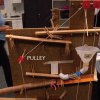
Build Your Own Marble Machine
Source Institutions
In this activity, learners will build a ball run contraption.
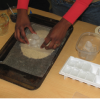
Ice on Mars
Source Institutions
In this activity, learners use sand and ice cubes to create a model of permafrost and the effects of the ice melting through the surface.
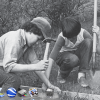
Trail Construction
Source Institutions
In this highly physical outdoor activity, learners construct and compare experimental trail sections to select the best trail-construction technique for their site.
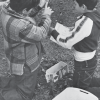
Litter Critters
Source Institutions
In this outdoor activity, learners use a "litter-critter" wheel to help them identify different animals they find living in a natural litter habitat.
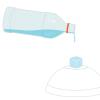
Instant Ice
Source Institutions
In this activity, learners observe a quick phase change as water rapidly goes from a liquid state to a solid state.
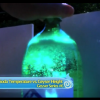
Temperature vs. Height: Soda Geyser Series #6
Source Institutions
In this activity, learners conduct a controlled experiment to examine how temperature will affect the height of a soda geyser.
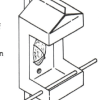
Bird Feeder
Source Institutions
In this outdoor activity, learners construct bird feeders and set them up at to investigate bird behavior for one or two weeks. Multiple feeder designs are suggested.
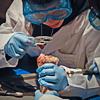
Chicken Wing Exploration
Source Institutions
In this activity, learners explore cooked chicken wings and identify the various parts including: bones (radius, ulna, humerus, shoulder joint, elbow joint), tendons, and cartilage.
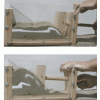
The Squeeze Box
Source Institutions
In this geology activity learners build a "squeeze box," which allows them to compress layers of sediment. This is a great way to investigate folding and faulting in the Earth.
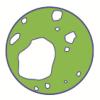
Sand Grain Observations
Source Institutions
In this activity (on page 1 of the PDF under SciGirls Activity: Earthquakes), learners will use a magnifier to carefully examine samples of sand from different locations.
Trees: Buds and Twigs
Source Institutions
In this hands-on nature activity, learners observe the emergence of leaves and flowers. Branches from trees and bushes are collected in the early spring, brought indoors, and placed in water.
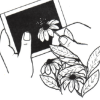
Flower Powder
Source Institutions
In this outdoor activity, learners use artificial bees and paper models of flowers to find out how bees transfer pollen from one flower to another.
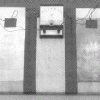
Human Battery
Source Institutions
Learners place their hands on different metals and use an ammeter to monitor the flow of electricity from one metal to another.
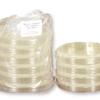
Does Sunscreen Protect My DNA?
Source Institutions
In this laboratory experiment, learners explore how effectively different sunscreens protect yeast cells from damage caused by ultraviolet (UV) radiation.
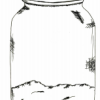
The Proof is in the Powder
Source Institutions
In this activity, learners will design a way to identify a powder found at a crime scene by comparing it with known powders, with the goal of solving a crime.

Outbreak!: Investigating Epidemics
Source Institutions
A group of learners simulates the spread of disease by trading slips of paper, one set of which has been treated with a baking soda solution.
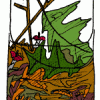
Decomposition Column
Source Institutions
In this activity, learners turn empty 2-liter bottles into a see-through compost container.
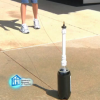
Number of Mentos vs. Height: Soda Geyser Series #5
Source Institutions
In this activity, learners conduct a controlled experiment to examine how many Mentos are needed to make the tallest possible soda geyser.
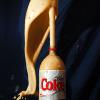
Soda Brand vs. Height Experiment: Soda Geyser Series #4
Source Institutions
In this activity, learners conduct a controlled experiment to examine which brand of soda makes the best (highest) soda geyser.
